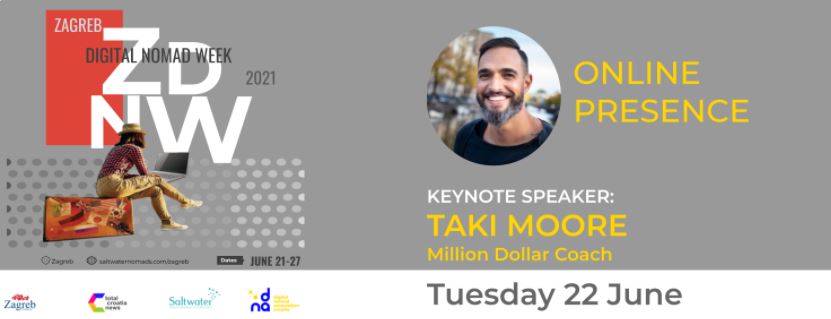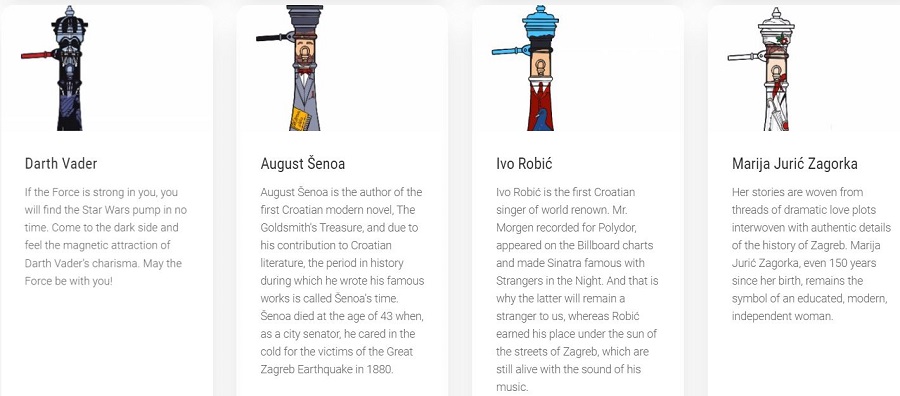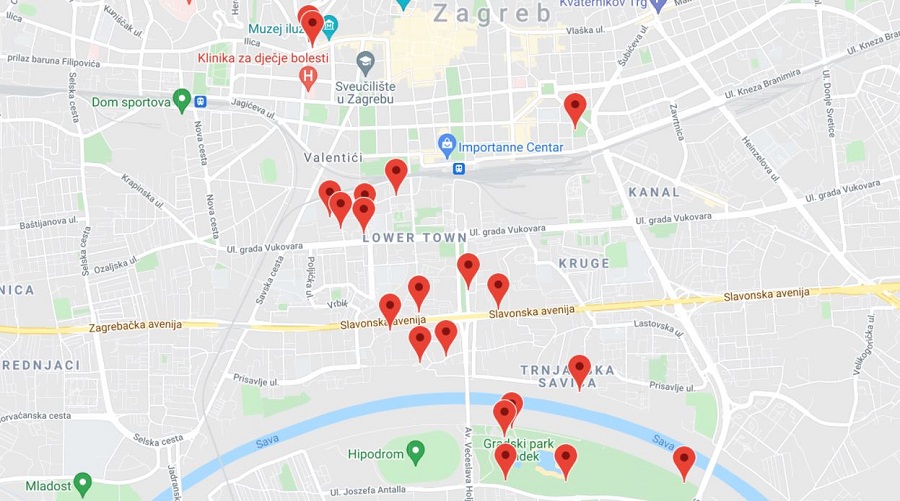Zagreb Digital Nomad Viewpoints: Impact Hub Co-Founder Hermes Arriaga
June 18, 2021 - Continuing our look at different perspectives ahead of Zagreb Digital Nomad Week 2021 & Zagreb Digital Nomad Ambassador Project, some thoughts from co-founder of Croatia's first-ever co-working space, Mexican Hermes Arriaga.
Ahead of Zagreb Digital Nomad Week 2021, which starts on Monday, we continue our look at Zagreb innovators from the co-working scene to get their perspectives on the current situation and future possibilies. One of the early movers and shakers came all the way from Mexico. Hermes Arriaga has had quite an impact as co-founder of the first co-working space in Croatia, Impact Hub Zagreb, way back in 2013.
1. Let's start with the obvious question. From Mexico to Zagreb - how and why?
I first came to Croatia in 2004, to visit my girlfriend back then. In 2006 I also came shortly for a small summer activity building the basis of a primary school building in Vukovar with my friend and other volunteers. I returned once more in 2008 where I spent around 8 months on Murter Island typing my MSc thesis while my girlfriend was doing an internship. The final visit was in 2009 when we moved from The Netherlands, after we both finished our Masters degrees. I decided to stay because of the potential in social and economic development I saw the country was going through pre-accession to EU.

2. Impact Hub was a very early mover in the coworking and community building scene. When did you start, and how would you describe the journey so far?
We knew about the concept back in 2008 when we were in The Netherlands, but it was only in 2010 that a group of 6 crazy persons (5 Croatians and this Mexican) joined as the funding team. Two years later we opened up in January 2013 as the first ever coworking space in Croatia with the pupose of social impact in mind.
The process of pre-opening was not easy since we were doing a lot of community building, we started with almost no funding capital and an idea which was not proven. The first 2-3 years were critical, a lot of iteration on the business model, many mistakes but also quite a lot of satisfaction, such as entrepreneurs getting high quality business support, the funding we helped them to obtain and the connections they got, were all part of the first stage of our business.
From 2016 to 2019 we consolidated the business, getting stable revenues and a better positioning in the market being recognized by organizations in the private, governmental and civil society sector as the place where change comes to work. We also started with the bigger programmatic part of our business managing, designing and developing programs of entrepreneurial education and support to different markets (social entrepreneurs, women entrepreneurs, migrant entrepreneurs and the development of skills and capabilities of youth).
The journey from October 2019, when we moved (for the 2nd time) to a bigger space (550 sqm) with more space for hosting events and other gatherings, bigger area for offices and coworking, to March last year was all going according to our growth plan. Then a pandemic started and the earth decided to shake. Take a look on our report with many info about our journey.

3. Tell us about some of your successes and failures on that journey.
Pre-pandemic, we offered an inspirational space designed for human interaction and learning. We hosted a vibrant and diverse community, and we provided meaningful and curated content of support. 70% of our members are co-founders of their project/organization. Since 2013, 126 new full time jobs have been created by Impact Hub members and only in 2018 for example, 70% of members achieved double digit revenue growth (vs previous year).
Our own business revenues were growing organically (18% growth rate the last 5 years until 2019), the space-based model with the expansion we had in the new space was very close to being self-sustainable, the programmatic area of our business with acceleration, incubation and mentoring was also growing, and a couple of small consultancy engagements where appearing on the horizon. Among other relevant data that we have until 2019, is a Net Promoter Score of 60 among our members and other people coming to the space, 81% of the members have said they accessed new clients and beneficiaries while working here and 95% of them said that most people in Impact Hub can be trusted (previous info is from yearly surveys analysed by the Social entrepreneurship Center by the University of Vienna, see our presentation about it here).
We also had big failures, like the big and juicy EU project (150K Euro value) we decided to step out of 3 years ago, after realising that its development In Croatia would have been detrimental to our positioning and financial sustainability. Or the corporate package we designed last year and totally did not fit the market. We can also mention our big focus on delivering impact, forgetting big time to communicate the successes and overall impact that we have had in many of the entrepreneurs and individuals, failing to properly build a marketing strategy around that.
4. There is a lot of buzz about the digital nomad opportunity in Croatia, especially with all the PR from the 12-month permit. How do you rate Zagreb as a DN destination. What does it do well, and what does it need to do better?
Zagreb is the best positioned of all cities in Croatia for entrepreneurs, according to, for example, the latest ranking from StartupBlink Ecosystem report. It is also high in the list on nomadlist.com. We were, I believe some of the first spaces in Croatia to offer an special package to digital nomads, which we opened for the first time back in 2016. The package evolved in such a way that up to last year during the summer of a pandemic year being the package that helped us to pay our space costs during July and August when we had more than 60 % of our members from that package, they stay for a shorter time (less than 3 months), are digitally connected workers from other countries traveling alone of in pairs.
We added extra support helping them find affordable spaces, we connected them with the locals and helped them answer their basic questions they had from MUP. However, there is no clear definition of a digital nomad, apart from their need of temporary working space and reliable internet connection. Their profile is very diverse. Our business model focus on leveraging the connections around our community and that implies having some kind of roots here, with a social capital and connections that can add to the community, so we had an offer for digital nomads but they have not been in our core as members, even if they stay 12 months, the question reminds the same, their interest is not necessary to stay connected locally.
Zagreb does well for them because of the diversity of cultural and social activities the city offers, because of how safe and reliable certain basic services are, from drinkable water from any tap to good public transpor. Sure, it can still do better with the bureaucratic process and ease of registering a company, or giving access to short term credit to non-Croatians and making a visit to the doctor more affordable if you don't have social security/insurance from the government.

5. One message that was clear from the Dubrovnik Digital Nomads-in-Residence program was the need to build community. As an observer, I think building community and providing local education of the opportunity are key. How would you assess the DN community currently, and can you give us 3 quick wins on how Zagreb can strengthen it?
As one of the main entities in Croatia doing proper community building ;), we believe it is all about setting the right conditions for communities to thrive. There is no such thing as managing a community, it is far better to enable a community, build the right container where fertile ground is ready for them to grow. Strong and resilient communities by the way are always small in size, their links are nurtured by practices and daily activities. At Impact Hub we have a value-based community where people also contribute on shaping and building this community.
This happens with time and not overnight, everybody needs a reliable social capital and connections to grow. We have experienced and will be experiencing that with our new business iteration to be released after the summer. Three things that can help are: 1. Be sincere about building a community 2. Practice a lot and be consistent on the terms, responsibilities and roles of everyone in the community and 3. There are no shortcuts ;) Read More
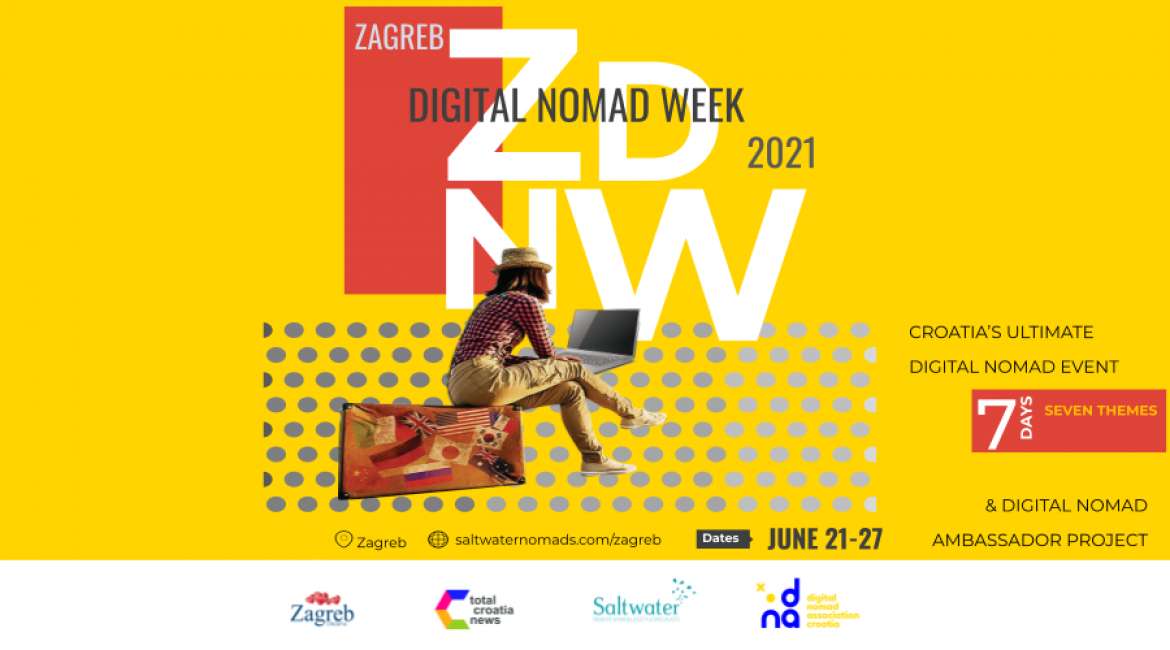
6. You are taking part in Zagreb Digital Nomad Week 2021. Tell us about your involvement, and how important you see the event to develop Zagreb's visibility in the DN community.
We need more events telling people about the collaboration that is happening among key ecosystem stakeholders, co-creation and collaboration are 2 words in the core of what we do (as stated back in 2016 by an article about the Future of work) an it is very nice to see this happening. Impact Hub will be offering free co-working throughout the week, and I will be taking part in a panel on the Friday, entitled DNA Croatia, Policy and Connecting to a Global Community.

7. You were certainly a pioneer all those years ago. What is your view of the startup scene, particularly with a view to collaboration and cooperation?
Cooperation is now happening, but not yet at the level needed. What is needed is more collaboration, but unfortunately many organizations do not understand the real meaning of it and think in transactional terms. We have been able to thrive as a small enterprise because of the collaborations and partnerships with a few but important key stakeholders in the startup scene. I think things are changing and I see a bright future.
8. Zagreb was very different when you moved here, but you were once a newcomer to the city. What Zagreb-specific advice do you have for nomads arriving in the city?
Be open. Try to connect locally from day one and make mistakes. This is a small city and you can get to know a lot of people by listening with attention while speaking with intention.

9. And finally, sell Zagreb to potential DN visitors in a paragraph.
Treat Zagreb as you would like to treat your hometown. Connect with the intention of making a positive impact, be mindful of the cultural differences and do not worry about the local mindset. If you do good the rest will give back… eventually.
You can learn more about the activities of Impact Hub Zagreb on the official website.
To register for free (both online and in person) for the Future of Work day on Friday June 25, register on the Saltwater Nomads website.
For more details of Zagreb Digital Nomad Week, click here.

For the latest news and features from the digital nomad scene in Croatia, follow the dedicated TCN section.
Air Canada Zagreb Service to Launch from Toronto in 2022!
June 18, 2021 - The latest flight news to Croatia as an Air Canada Zagreb service will launch from Toronto in 2022!
Great news for the Canadian market in Croatia as Air Canada plans to launch a service between Toronto and Zagreb from June 2 next year.
Namely, Ex Yu Aviation reports that Air Canada will take over the route from Air Canada Rouge. Air Transat also operates on this route and plans to resume its seasonal service to Zagreb service on May 29 next year with the 332-seat A330-200 jet. Recall, Air Transat canceled all already announced flights on the Toronto-Zagreb route this year back in March. In January, the airline confirmed that it planned to re-establish the line between Toronto and Zagreb in the upcoming summer season, leaving the possibility of reducing or completely canceling the line if the demand was not satisfactory. The airline established a direct line between the two cities in June 2016, continuously increasing the number of weekly flights from season to season until the summer season last year when the line did not operate due to the pandemic.
Thus, from June 2, 2022, the new Air Canada service will run three weekly flights on Mondays, Thursdays, and Saturdays and return the following day. The 297-seat Airbus A330-300 aircraft with 32 seats in business (signature) class, 24 in premium economy, and 241 in the standard economy will operate on this line.
The last flights that connected Toronto and Zagreb operated in October 2019, after which the COVID-19 pandemic stopped all flights between Toronto and Zagreb in 2020 and 2021.
Ex Yu Aviation adds that the Canadian market is significant for Croatia as it serves both travelers on holiday and those visiting friends and family.
Just how successful the routes between Canada and Croatia have been can be seen by the 2019 figures when Air Canada Rouge and Air Transat recorded 65,486 passengers, a 14.6% increase compared to 2018. Furthermore, the number of indirect passengers flying between Croatia and Canada was 71.254 in 2019.
This announcement means even more good news for the capital city airport, which also welcomes a Ryanair base this year with 15 international routes.
Follow the latest on flights to Croatia HERE and the latest travel updates and COVID-19 news from Croatia HERE.
For more on travel in Croatia, follow TCN's dedicated page.
BIZkoshnica, Zagreb Coworking Since 2015: Mirela Marovic Omerzu Interview
June 17, 2021 - Zagreb Digital Nomad Week 2021 begins on Monday. Continuing our look at the hosts of the event, meet one of the ciy's coworking pioneers, Mirela Marovic Omerzu, owner of BIZkoshnica, who will be hosting Tuesday's event on Online Presence
The digital nomad buzz in Croatia is getting louder, so time for some perspective. Mirela Marovic Omerzu opened one of the first coworking spaces in Zagreb back in 2015 and has been following the development of this sector ever since. Some fascinating insights into how things where, how they are now, and where they could go.
1. You were one of the first to open a coworking space in Zagreb back in 2015. Tell us about that decision and how locals perceived your idea.
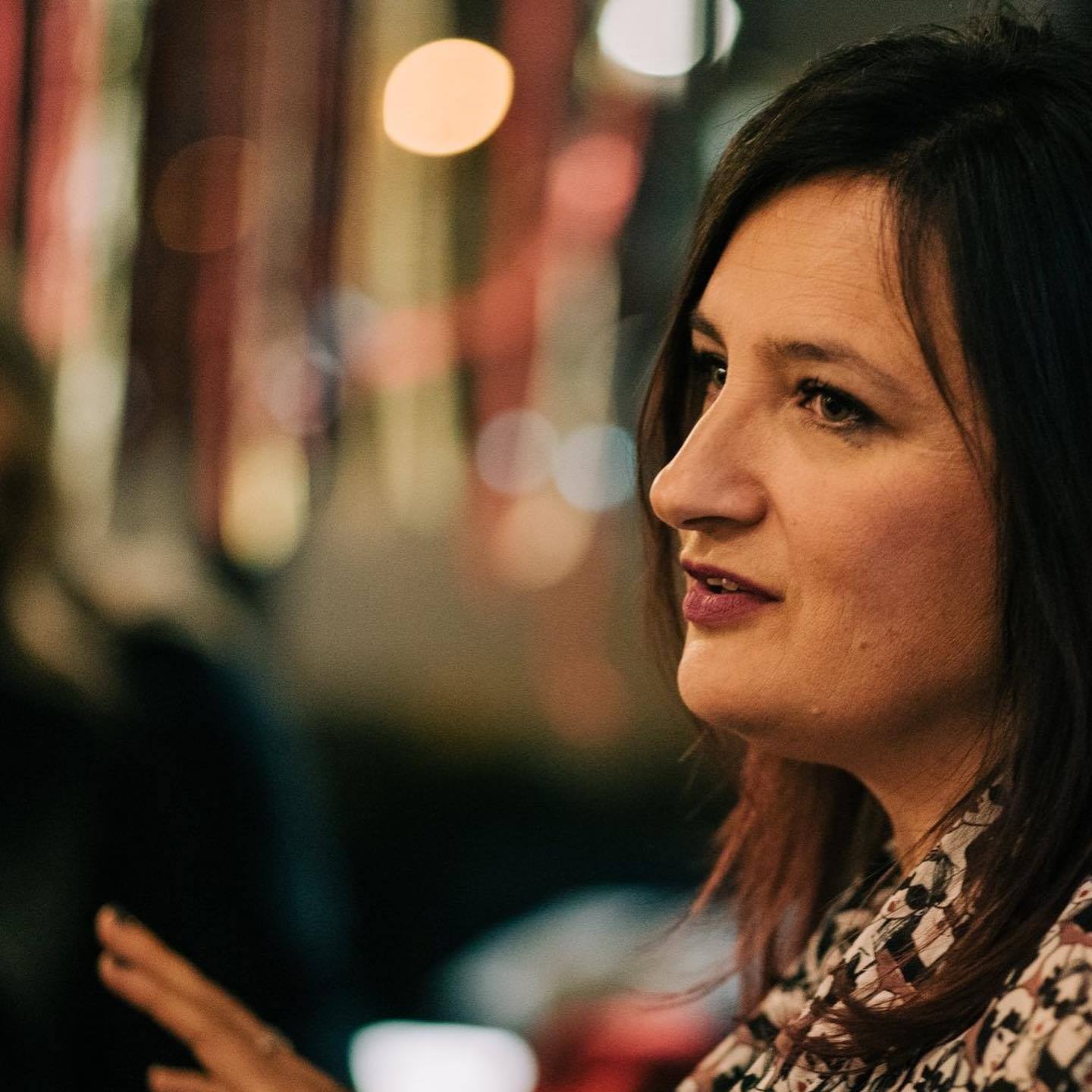
To be honest I didn’t really know much about coworking at the time. Well, it's better to say I knew almost nothing. I had a potential space at my disposal that was in a very bad condition and I wanted to make creative space out of it. One that I would share with others. I felt that other micro-entrepreneurs had similar challenges. At the time my kids were very small, I was working from home, which was neither satisfying nor productive. I felt lonely, sometimes desperate and I longed for informal conversations with adults and I needed a boost for my business. When I started researching what is needed to realize this idea, the coworking model stood out. I wanted to offer the market a local story while respecting the core values of the coworking movement such as openness, flexibility, collaboration and sustainability. Today I can say that these values fully resonate with the members of BIZkoshnica and with me and that we live them daily.
At the time, the coworking idea was very abstract to most people, apart from a few freelancers or entrepreneurs. It took some time for a certain mindset-shift for people who start their own business to accept a flexible office solution as ideal and for them to see the benefits it brings. Benefits such as informal networking, business and project opportunities, the development of business skills and personal development that is inevitable in working with people and ultimately that it is more cost-effective. The main advantage is that most of our members are independent and are free from the belief that everyone is everyone's competitor or that they are not allowed to share their ideas, which is a belief people working in larger corporations often have . Working in coworking is characterized by a relaxed and stimulating atmosphere without strict rules where collaboration culture can be implemented easily. The most important thing is that the person is open minded and that they doe what they love and what they are good at.
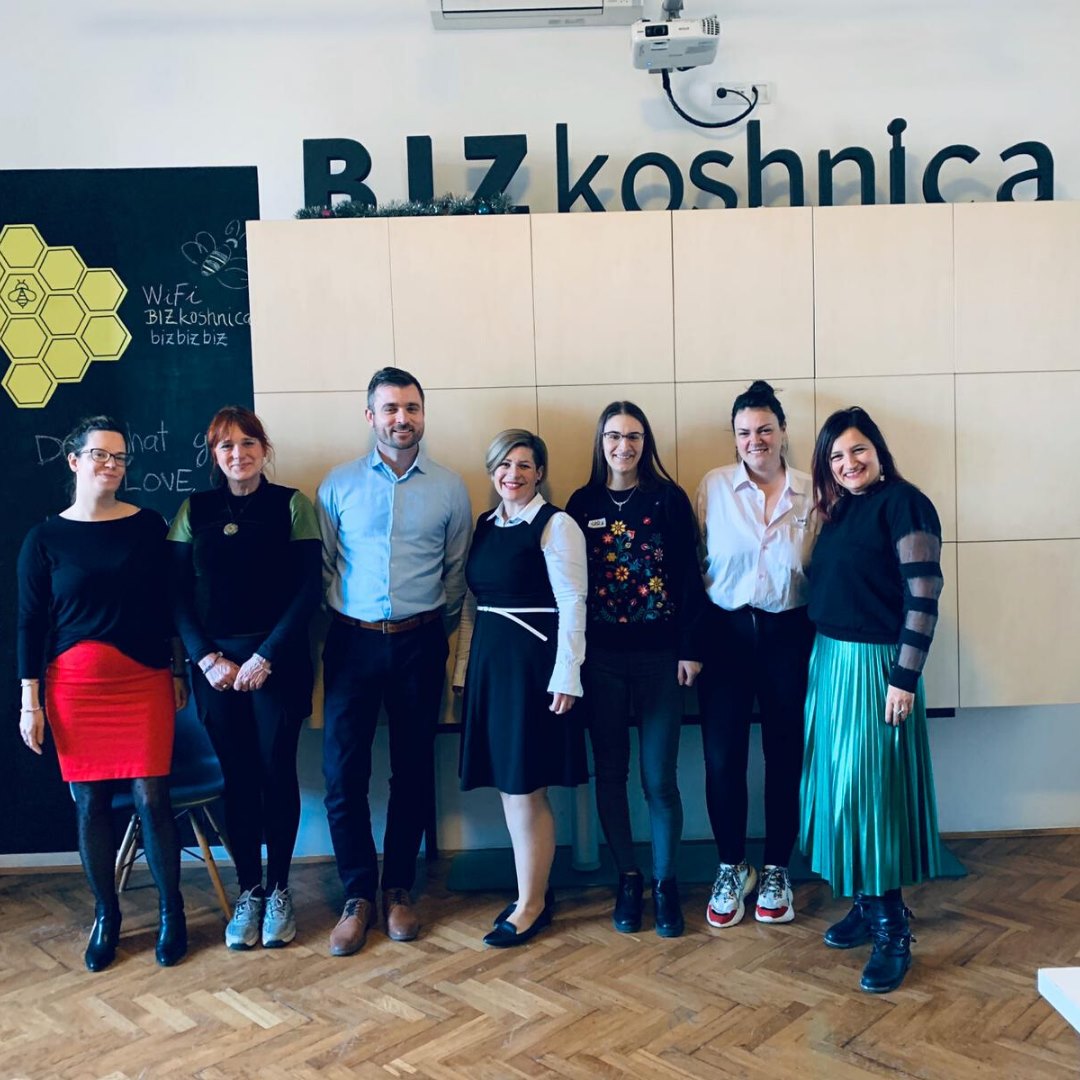
2. Things have changed a lot since then of course. How would you describe the co-working scene today in the city?
Today, the scene of coworking space in Zagreb is quite different. A lot of coworking spaces have opened up, there are a lot of spaces called coworking spaces just because it sounds good, but some are exclusively real estate businesses. A lot of specialized spaces have also opened up. IT oriented, social impact, tourism oriented.
Sometimes I feel like Statler and Waldorf from the Muppet show who watch it from the sidelines and comment. I am strongly personally attached to coworking and for me, coworking is not just the future of work but the only way to work. I don't know what the future holds, but common sense tells me that people will increasingly accept flexible ways of working and that trends inevitably go in the direction of cooperation, self-employment, independence, digitalization, and that the need for collaborative spaces will grow.
On one hand, I welcome the opening of new shared spaces, coworking spaces, because it means that the economy is recovering, that the way of working is changing in the direction of sustainability, cooperation and flexibility. On the other hand, each space should build its own story with appropriate content and offer it to its specific target group. There is still a lot of potential in the coworking market in Zagreb, which already has a well-developed offer, while in the smaller cities on the coast as well as in interior parts of Croatia the need and potential is even greater. There is still work needed to change people's mindsets and habits.
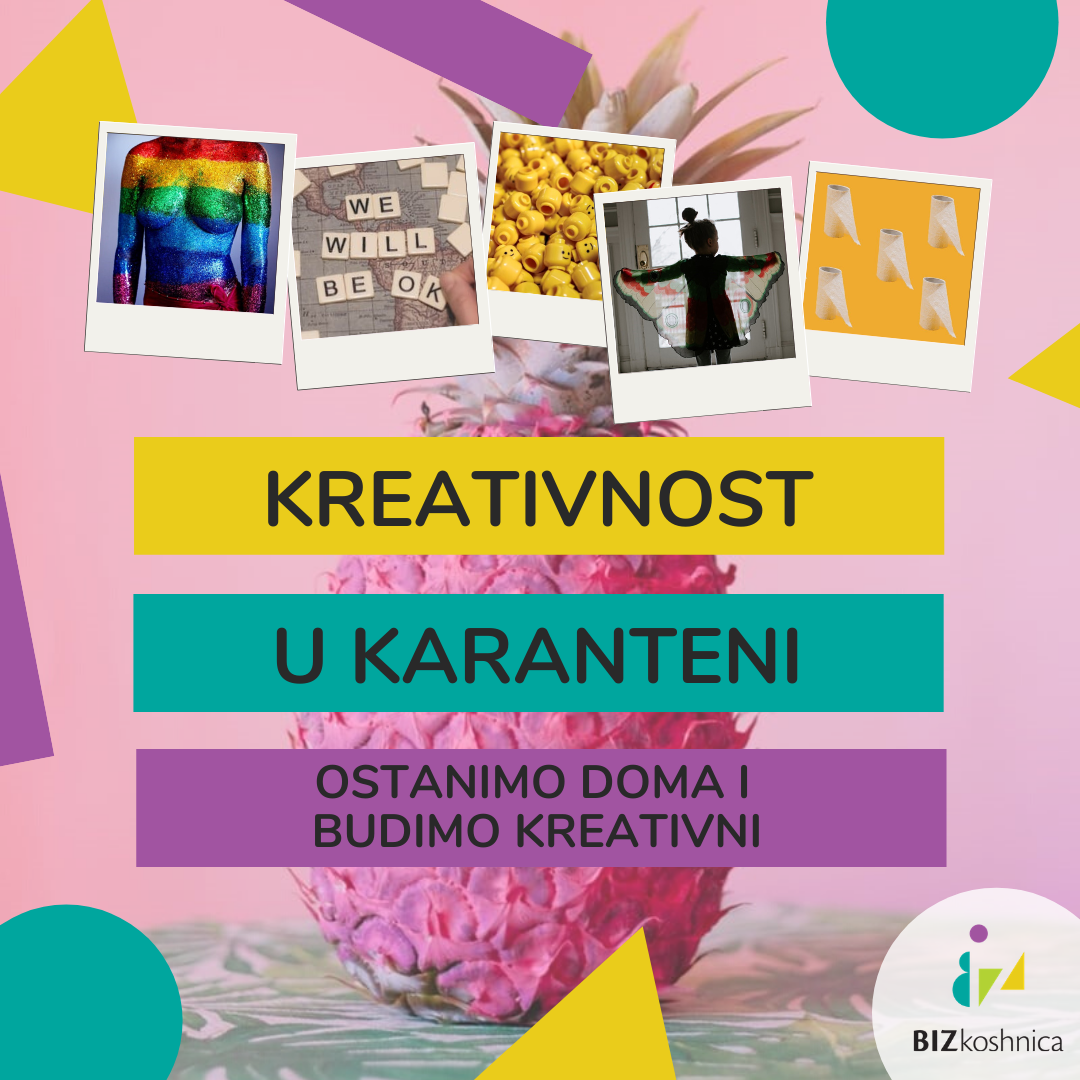
3. The pandemic changed the way we work, but Zagreb also had the devastating earthquake of March 22 to contend with as well. Tell us about the realities of running a coworking space in 2020 in Zagreb, and how you adapted?
Sometimes I think we are starting all over again from scratch, but we are fortunate it left mostly material damage. It was really hard in 2020 firstly because all the events stopped due to covid pandemicand that used to account for 70% of our revenues. When the earthquake hit it left some damage in the space too because we are situated in the very central position at Zagreb’s British square. In 15 seconds one of our main selling proposition points turned into the biggest downside. After the first shock, a big help for us was mutual online socializing with our members and with Creative Hubs network as well as regular zoom calls with colleagues from all around Europe that are running spaces. The fact that we are not alone and that we are in the same problem was a soothing fact. We managed to renovate and adapt the space, the loyal members stayed and started to return after the lockdown. We adapted to the situation so that we are offering some of the services online like VirtualBee service or online educations. We encourage our clients to organize hybrid eventswhere online and offline events are combined. The space was adapted so that users have enough space and are not in danger of spreading the virus among each other. The space is regularly disinfected.
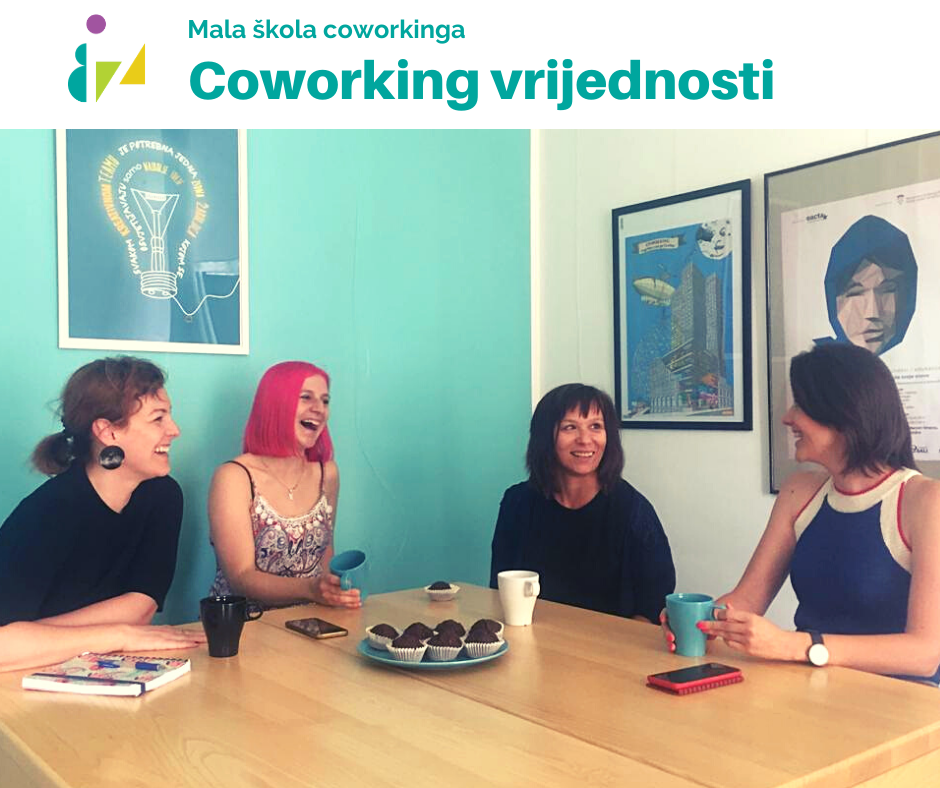
4. There is a lot of buzz about Croatia as a digital nomad destination. Do you think it is justified? What does Zagreb do well, and what should it be doing better to serve digital nomads?
This buzz is great and I am really welcoming the idea of Croatia as a digital nomad destination. Croatia has all of the prerequisites for a great life: indescribably beautiful nature, cultural heritage, cordiality, ideal climate, excellent geographical location as well as connections. Those are also some of the reasons why I decided to stay in Croatia. Zagreb particularly is an attractive city, especially in these times with regards health and safety. It’s big enough, while still remaining cosy compared to other metropolises. Proximity to the Adriatic coast, and to other attractive destinations in the interior makes it desirable as well. All the amenities needed by digital nomads are available. High speed Internet connection, coworking spaces and communities, affordable housing, good restaurant offerings and other offerings necessary for a nice quality of living. I’m not particularly familiar with the activities Zagreb as a city undertakes to attract digital nomads. There is a national campaign, but I don’t believe that it is enough.
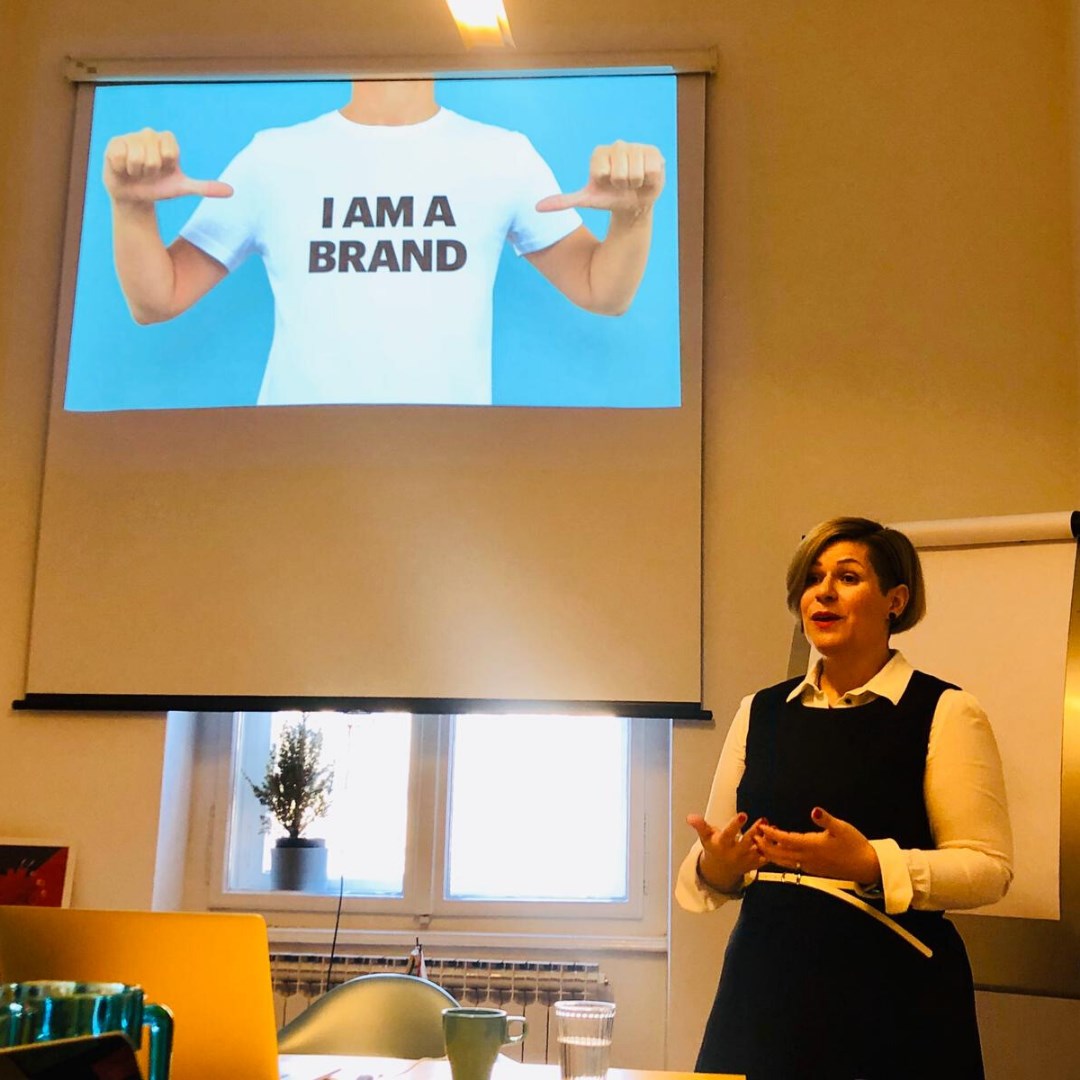
5. Three quick wins to improve Zagreb's digital nomad offer?
The promotion of the opportunities for digital nomads in Zagreb should be done more intensely. Information on how to acquire visas and permits for digital nomads, as well as travel, accommodation, coworking opportunities should be obtained easier. Tax and legal advice and requirements should be more readily available and appropriate.
6. You have obviously been dealing with digital nomads in Zagreb for several years here in Zagreb. What trends have you noticed in the last couple of years?
We have had digital nomads from all around the world in BIZkoshnica so far. United States, Australia, Philippines, Sri Lanka, Morocco, India, Canada, Israel… We remain inspired by their life and business stories. They all fit in very well and had no special requests or needs despite the different cultures that they came from. I would say that locals are more picky and demanding. What the digital nomads brought to our community is a sense of possibility and the feeling that the world is only one and that we are all one. We have kept in touch with many through social media networks, we follow their work and travels. The influence of digital nomads and their openness in the exchange of culture and experiences is invaluable. They can make a real impact in the local economy, as well as provide inspiration for young people to follow their example in life and work. I would say that in the long run, digital nomads themselves could become ambassadors of a country they are visiting if their stay was pleasant and met their expectations. They will spread the word among their friends and companions. Among the digital nomads who came to BIZkoshnica, there were many couples who travel together, but work completely independently and remotely, the age ranges were from 25 to 55. Most of them stayed in Croatia for multiple months and during their stay they were very active in getting to know the country and people and its tourist attractions, local habits and culture as well as visiting surrounding countries on weekends.
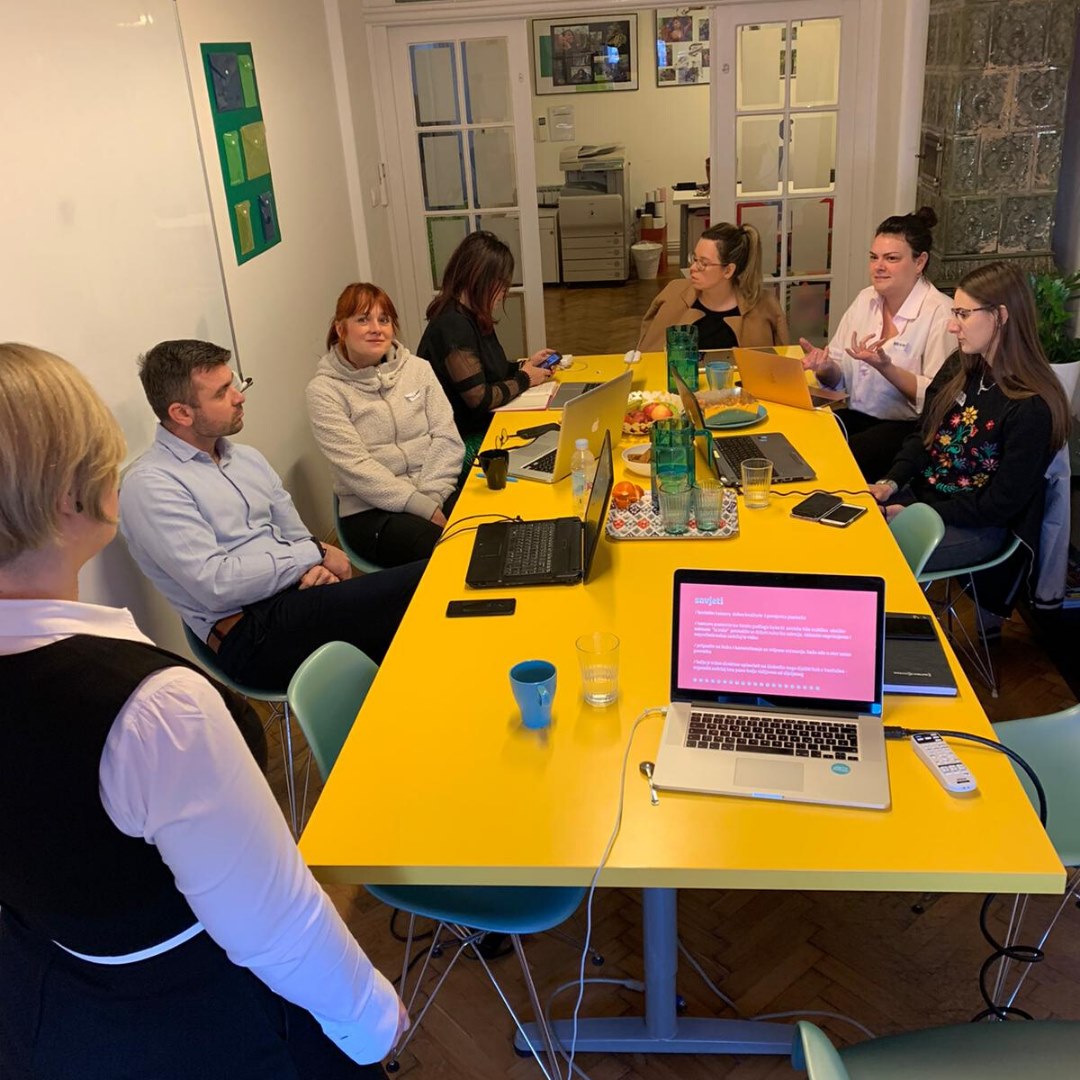
7. What is the Zagreb DN community like at the moment, and what strategies would you implement to grow it significantly?
It takes time and personal efforts to build any kind of community. At the moment the digital nomads community is in the establishing phase but the Digital Nomad Association is doing great in all its initiatives. More stakeholders need to get involved. The numbers of approved digital nomad visas are growing and digital nomads are choosing not only Zagreb but other cities in Croatia to stay. Firstly, once the digital nomads are attracted by Croatian natural beauty, its safety and high quality of life, all the other practical information about accommodation, taxes, health insurance, coworking spaces need to be communicated to the digital nomads preferably in one central spot.
Being aware that digital nomads, alongside freedom and flexibility, are mostly interested in making connections with local people, it is needed to provide different kinds of networking events to enable them to learn about local culture, to meet local entrepreneurs, to participate in meet ups and skill sharing events. All of these events are needed to keep the digital nomad community alive. The intra personal and business connections need to happen, so they can do their job at such events. Given the easing of covid measures, we expect to organize more such events also in our space.
8. Tell us about your involvement in Zagreb Digital Nomad Week, and what should the city be looking to get out of the event?

Once Tanja Polegubic from Saltwater Nomads presented the project to us, we immediately decided to get involved because we see great value in such initiatives that help connect digital nomads with the coworking, business and tourism community in Croatia. We are looking forward to hosting a DNW event at BIZkoshnica and our goal is to introduce visitors to our members, as well as to find out about the needs of digital nomads present in Croatia. Digital Nomad Week is an ideal way to promote and popularize digital nomads and the benefits we can have from their stay in Croatia, not only in terms of tourism but from the perspective of local community development.
Zagreb has yet to open up and show everything that it has in store. Zagreb offers a lot, but is hiding its gems, and there is so much authenticity to be proud of. Perhaps the Croatian paradox of identity is also reflected in this. We Croats often do not appreciate our own and think that we are not good enough and that everything that is coming from abroad is better, while at the same being very proud of our heritage only. That is that paradox that keeps us in place like a children game Frozen queen 1, 2, 3. ☺
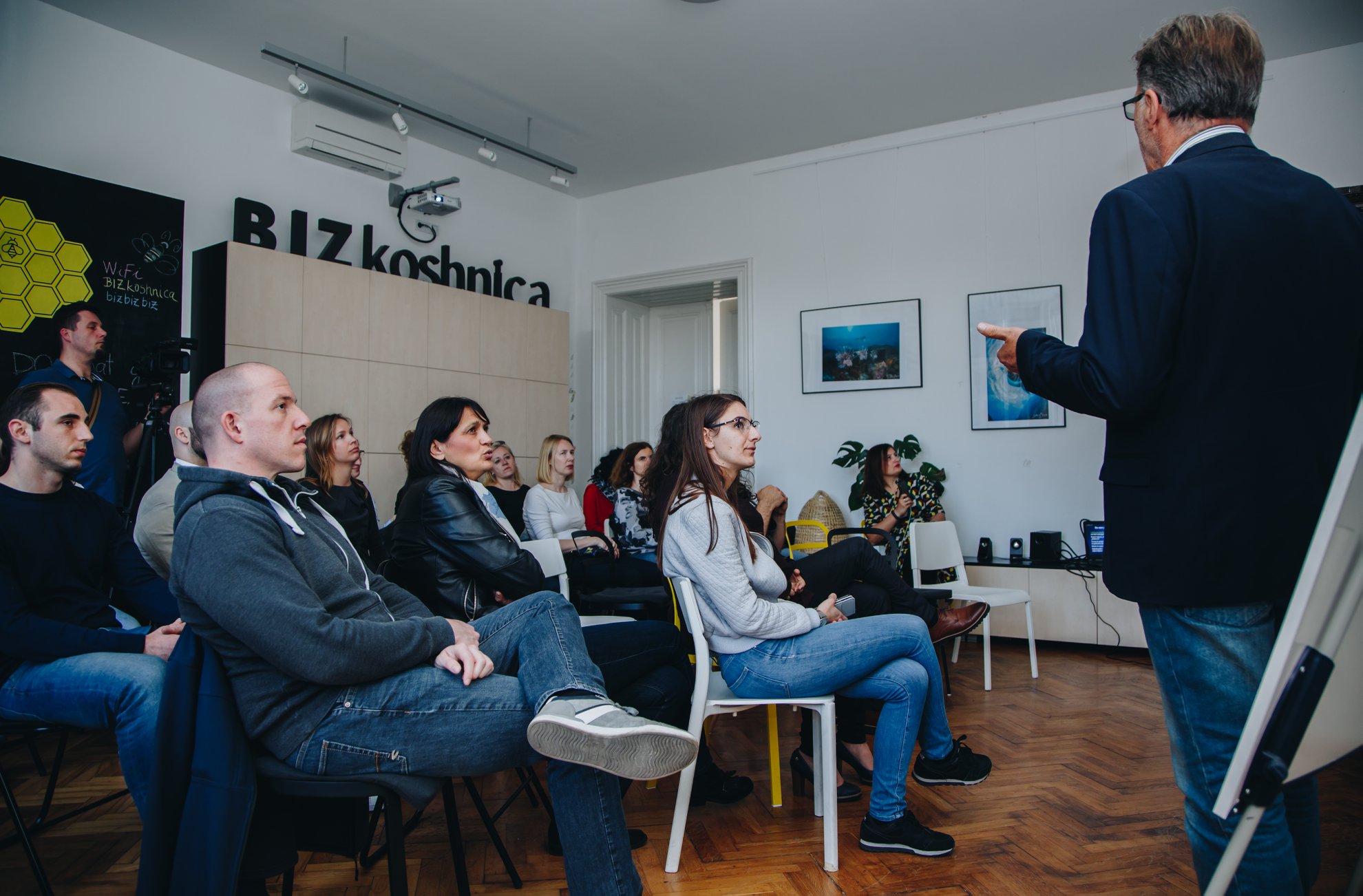
9. And finally, in a paragraph, sell Zagreb to potential DN visitors. Why should they come here?
As a young traditional girl full of life and potential, Zagreb wants to open up and offer all its possessions to the world. She knows she offers a lot, but she’s shy, she likes to hide. She thinks other cities are better. Then one morning she wakes up and realizes she wants to live her own life and be herself. She starts to stroll from the center, through the streets of the lower town full of historical sites and stories, intertwined with the modern way of life. There are a lot of people there, they speak good English, they are educated, cultured and hospitable. They enjoy their city and everything it offers from the urban lifestyle, countless cafes, delicious food, museums, theaters, concerts, events to nature in the city, the beautiful Zagreb's mountain of Medvednica, green city parks, lakes Bundek and Jarun, the Sava River. In the vicinity of Zagreb there are many excursion destinations, many sports and cultural facilities, national parks and nature parks, castles, rural households offering organic food and pristine experience.
The sea and the Adriatic islands are less than a 2-hour drive away. Every place, island, stone tells its own story, and the visitor builds his own experience upon that and always gladly returns to that paradise on earth. The land of the most beautiful sunset, the land of thousand islands, homeland of many inventors, homeland of necktie, pen and the fastest electric car in the world. Welcome digital nomads! Zagreb greets you.
BIZkoshnica will be hosting Day 2 of Zagreb Digital Nomad Week on Tuesday, 22 June, with the theme of the day - Online Presence. More information on that, as well as where to register (online and in person - please note that physical places are limited due to the measures) here. Attendance is free.
For more on Zagreb Digital Nomad Week 2021 & Zagreb Digital Nomad Ambassador Project, visit the Saltwater Nomads website.
For the latest news and features on digital nomads in Croatia, check out the dedicated TCN section.
City of Zagreb Unlawfully Expropriated Land to Build Car Park for Cableway Users
ZAGREB, 17 June 2021 - The City of Zagreb unlawfully dispossessed the owners of a piece of land in the Gračani neighborhood to build a car park for the Sljeme mountain cableway, the Justice and Administration Ministry confirmed to Hina on Thursday.
The Ministry said that on 21 May it had annulled the decision by the city department for property relations and referred the case back to the City for reconsideration after it found that the City had taken possession of the property in question before the expropriation decision became final.
According to media reports, the Ministry granted the appeal filed by a lawyer on behalf of one of the co-owners of the land who died during the expropriation process. The City needed the land to build a car park at the foot of Mount Sljeme to serve cableway users.
While it was still not known who would inherit the property of the deceased co-owner, the City decided of its own accord that would be his wife and daughter. Media say that the wife never received a copy of the expropriation application and that the City ignored the fact that she is infirm and needs a guardian. The City, on the other hand, argued during the appeal process that the whole case was conducted in accordance with the Roads Act and not the Expropriation Act and that the owners had been paid for their land.
For the latest news about Zagreb, click here.
Možemo!, SDP Sign Agreement For Zagreb City Assembly
ZAGREB, 16 June, 2021 - Zagreb Mayor Tomislav Tomašević and Social Democratic Party (SDP) president Peđa Grbin said on Wednesday that Tomašević's Možemo! platform and the SDP had signed a coalition agreement for the City Assembly and that its chair would be from the SDP.
The agreement contains 28 programme goals, including social and housing policies, environmental protection, waste management, water supply and drainage, and sustainable transport. culture, education,
Speaking to the press, Tomašević highlighted stepping the post-earthquake reconstruction of public and private buildings, reducing the number of city offices, a more transparent budget, and digitalising the city's administration and companies.
He said the majority in the City Assembly would have 28 deputies, that Možemo! and its partners would chair 14 of the 18 committees, and that Možemo! and the SDP had agreed to annually evaluate the realisation of the programme goals.
Tomašević said the Možemo! and SDP programmes were highly compatible and that he expected good cooperation as Zagreb needed a stable majority given all the challenges, adding that the City Assembly would be inaugurated tomorrow.
Grbin: The agreement is a pledge for the future
Grbin said the SDP Presidency's candidate for the assembly chairman was Joško Klisović, who had been the party's mayoral candidate.
He said that Zagreb's many problems had to be dealt with right away, adding that they could not be solved if the mayor's proposals did not have firm support in the City Assembly.
Grbin said the recent talks between the SDP and Možemo! had been "unbelievably constructive" and that their programmes were "very complementary and that's why we found a common ground on what our priorities will be."
As for goals of special importance to the SDP, he mentioned the introduction of a city treasury and an Internet platform to enable anyone noticing corruption in the work of the City Assembly to report it.
Grbin said today's agreement was a pledge for the functioning of Zagreb that would ensure the city's transformation as the SDP and Možemo! had announced during their mayoral election campaigns.
For more about politics in Croatia, follow TCN's dedicated page.
Tomislav Tomašević: Decision on Zagreb Holding Appointments According to Law
ZAGREB, 16 June, 2021 - Zagreb Mayor Tomislav Tomašević said on Wednesday that the decision on new management and supervisory boards in the Zagreb Holding utility company was legally valid and in accordance with the law on local and regional government and the Companies' Act.
The Conflict of Interest Commission has launched a case against Tomašević, the commission's president Nataša Novaković said on Tuesday, who underscored that the case was opened due to a possible breach of Article 15 of the Conflict of Interest Act, after staff were appointed in Zagreb Holding contrary to normal practice.
Tomašević noted that the decision has already been registered in the Commercial Court register.
"With reference to launching the procedure before the Conflict of Interest Commission for an alleged breach of procedure, we assessed that the situation in Zagreb Holding warranted immediate action and so we decided to adopt decisions according to valid laws and the usual practice. We need to underline an additional circumstance, that until the representative body is constituted, it cannot propose new members to management and supervisory boards," Tomašević said in a press release.
The mayor's office recalled the Conflict of Interest Commission's opinion in 2013 in which it notes that "in cases where collision between the provisions of Article 15, Par. 2 of the Conflict of Interest Act and the provisions of Article 48 of the Local and Regional Self-Government Act occur, the provisions of the law that enter into force later are applied - lex posterior derogat legi priori - hence the provisions of Article 48 of the Local and Regional Self-Government Act."
Based on that article, mayors and county prefects appoint and relieve representatives of local government in local companies in which the local government holds a stake or ownership shares.
After the signing of a coalition agreement between Tomašević's We Can! party and the Social Democratic Party (SDP), SDP leader Peđa Grbin said that the Conflict of Interest Commission had reacted to an article in the law that until yesterday it had called to be erased, considering that the 2012 law on local government regulated the issue of appointing members to management and supervisory boards in companies owned by local government in a different way.
"With due respect to the Commission and to the excellent work it does in numerous spheres, this isn't its duty but that of the legislator," said Grbin, who called on the government to send amendments to the laws to parliament as soon as possible.
"I expect the government to forward amendments to the law on local government or to the law on the conflict of interest as soon as possible so that this issue is absolutely clear and unambiguous and to define how management and supervisory boards in companies in local government are to be appointed," added Grbin.
He urged that the amendment be brought urgently as this same situation could occur in other cities around the country and that a broad consensus should be reached on this matter.
For more about politics in Croatia, follow TCN's dedicated page.
GONG: "Tomislav Tomašević Betrayed Pre-Election Promises"
ZAGREB, 16 June, 2021 - The GONG NGO said on Wednesday that the newly-elected Zagreb Mayor Tomislav Tomašević had betrayed his pre-election promises by appointing members of the Management Board of the Zagreb Holding utility conglomerate without competitions for the posts.
Appointments made without a competition are not the path citizens chose in the elections, wanting a change in the way Zagreb is run, although it is indisputable that the City and Zagreb Holding (ZGH) have huge debts and that it is necessary to act as soon as possible, GONG said in a press release.
The NGO thinks that Tomašević should have kept the promises and standards announced in the election programme if he really wants to change the model of governing Zagreb and after 20 years of Milan Bandić's rule stop the practice of non-transparent employment.
The new model of governing Zagreb, announced by the Možemo! platform, explicitly stated that members of the management board of Zagreb Holding (and other city companies) would be selected in a public procedure, with the obligatory publication of their programme. This has not been done so far, and public calls will only serve to select additional members of the ZGH management and supervisory boards, GONG said.
For years, GONG has been advocating obligatory public calls for the selection of management staff in public and city companies, with adherence to the principle of competence.
We think that there is a high risk of corruption in public companies which have large budgets and a large number of employees, GONG said.
Explaining on Tuesday why he resorted to the direct appointment in ZGH although in the run-up to the elections he and his party (We Can!) promised the appointment of executives and management members of the city-owned companies only through public calls, Tomašević said that the situation inherited from the previous local government forced them to react quickly and the direct appointment was the most responsible solution.
Commenting on ZGH's loss of HRK 305 million, Tomašević said that the current city administration had two options: to keep the incumbent management that obviously failed to put the situation under control or to dismiss them and leave ZGH without management several months for the duration of the selection procedure.
The mayor elaborated that the minimum number of members of the management and supervisory boards of ZGH were directly appointed and promised the advertisement of public calls for the remaining three members in the management board and the remaining members of the supervisory board.
For more about politics in Croatia, follow TCN's dedicated page.
Zagreb Mayor Tomislav Tomašević: We Didn't Break Our Promise on Advertised Vacancies For City Execs
ZAGREB, 15 June, 2021 - The appointment of new members of the management and supervisory boards of the Zagreb Holding without a public call for the selection of applicants did not constitute a breach of the pre-election promise, the new Mayor of Zagreb, Tomislav Tomašević, said on Tuesday.
The multi-utility conglomerate Zagreb Holding's assembly on Monday relieved the supervisory and management boards of their duties, appointing Suzana Brenko Supervisory Board chair and Ratko Bajakić and Damir Topić its members. The provisional Zagreb Holding (ZGH) Management Board was appointed as well, with two new members, Nikola Vuković as Management Board chair and Ante Samodol as a member.
Tomašević said that the situation inherited from the previous local government forced them to react quickly and the direct appointment was the most responsible solution.
Commenting on ZGH's loss of HRK 305 million, Tomašević said that the current city administration had two options: to keep the incumbent management that obviously failed to put the situation under control or to dismiss them and leave the Holding without management several months for the duration of the public tender.
Tomašević said that this was why he resorted to the direct appointment although in the run-up to the elections he and his party (We Can) promised the appointment of executives and management members of the city-owned companies only through public calls.
At a meeting held with Mayor Tomašević last Friday, the former ZGH management reported on the conglomerate's financial situation and losses incurred in 2020. An audited and consolidated report for 2020 shows that ZGH has for the first time in the last seven years incurred a loss of HRK 305 million, the mayor's office said on Monday.
Today, the mayor elaborated that the minimum number of members of the management and supervisory boards of ZGH were directly appointed and promised the advertisement of public calls for the remaining three members in the management board and the remaining members of the supervisory board.
For more about politics in Croatia, follow TCN's dedicated page.
Pimp My Pump: Bringing Art to Zagreb's Public Drinking Water
June 15, 2021 - Zagreb continues its efforts to promote sustainability through art, this time highlighting the publicly available drinking water. Meet Pimp My Pump.
A few months ago, I read an article about a journalist in his 50s who decided to try and live for a week without the Internet and return to the communications era of his youth. He spent an illuminating but very frustrating week in London trying to get through the basics of his day without resorting to going online.
One of the observations which stayed with me from his article was his experience of walking the streets of London. Every other pedestrian, he noted, was looking down into their phones as they walked, while the journalist was looking up at the street signs to check he was going the right way. And not just the street signs. Walking around the city without the distraction of the smartphone in hand, he was able to view the city as he had not done in years, and admire all its beauty.
Zagreb due to the pandemic is a little like that these days. Take yourself out of your phone and look around the city as you walk. The Zagreb Tourist Board has placed a strong emphasis on oudoor activities and the city's parks, lakes and open spaces. The Around Zagreb initiative with the Zagreb County Tourist Board has been an unqualified success, opening up the city's tourism offer to a diverse range of additional options.
Watch out as you wander the streets of the city, and see if you can spot some of the quirky art projects around the Croatian capital. As previously reported early this year, Street Triptych and Little Zagreb were new additions to the Zagreb scene (check out the videos above and below), and since May 31, there is a new addition to look out for, focusing o sustainability and an important source of life itself. Drinking water.
Is the water safe to drink?
One of the most common questions asked on holiday in a strange country. The answer in Croatia, of course, is an emphatic yes. The drinking water in Croatia has always been excellent, and many tourists do not realise that you can drink the water from the fountains and city pumps. Rather than buying plastic bottle after plastic bottle, a little education can encourage a little more sustainability, replenishing an empty plastic water bottle, rather than tossing it aside and buying another.
In order to highlight this, Zagreb has unveiled the Pimp My Pump initiative, merging its world-famous street art with a very sustainable message, while highlighting the availability of public drinking water all over the city.
In cooperation with the Pimp My Pump Association, some 20 public water pumps (known locally as Iron Franceks (Željezni Franceki in Croatian) have been given a colourful makeover and a lot more visibility. Each pump is themed, some with local personalities, some with more of a global appeal, and each with their own individual story which you can learn via a QR code.
Looking to entertain the kids while delivering a message of sustainability? There are 20 pumps in all, dotted all around the centre, a rather unique way to entertain the little ones while you stroll around the Zagreb Great Outdoors.
The pumps are located close to several of Zagreb's major tourist attractions, and if you wanted to enjoy the magic and tranquillity of Bundek Park, for example, there are five pumps to be found there alone. A great way for the kids to run around and burn all that energy, only to be looking for water to quench their ensuing thirst. And where better to do that that with fresh drinking water dispersed by the likes of Homer Simpson into a reusable plastic bottle?
You can get more information about the project, as well as download a PDF of the map above from the official tourism board website.
For the latest news about Zagreb, click here.
Dijana Zadravec Presents Her Evidence of Corruption in a Zagreb Hospital
ZAGREB, 15 June, 2021 - The National Anti-Corruption Council on Tuesday interviewed the dismissed head of the radiology ward of Zagreb's Sisters of Charity Hospital, Dijana Zadravec, who presented her evidence of criminal activities used to siphon money from the hospital.
Zadravec, who has been on sick leave since May, told members of that parliamentary body that she learned yesterday from the media that acting hospital director Zoran Vatavuk had given her a warning before dismissal for harming the hospital's reputation, noting that the hospital's reputation was harmed by corruption and those who committed and covered it up.
Zadravec said that her fight against corruption started in 2016, when her persecution and harassment started as well.
She said that as the deputy hospital head she reported in 2016 the charging of fictitious overtime work which the then director Mario Zovak had covered up, adding that she had reported this to the prosecutorial authorities and the Health Ministry.
Zadravec said that in late 2020 she discovered a criminal network at the hospital, with public money being siphoned by doctors, which was why she reported them for abuse of office.
The doctor, who claims to have extensive documentation proving her allegations, says that offers to suppliers with whom the hospital did business without public tenders, since the last public tender was conducted in 2019, were signed by doctors Vladimir Kalousek and Branimir Čule, and that the offers exceeded HRK 30 million.
She also cited cases when less material was used for operations than the quantity ordered from suppliers.
Commenting on Zadravec's allegations, the State Secretary and chair of the Sisters of Charity Hospital Steering Board, Tomislav Dulibić, said that hospital documentation was being checked by inspectors from the health and finance ministries and the HZZO health insurance agency.
"According to preliminary information, no significant departures have been found, except for some minor irregularities. Eleven inspectors are working on this, invite them to testify," Dulibić told the Anti-Corruption Council.
He said that the decision to carry out the inspection at the hospital was made a couple of weeks ago, noting that the relevant proceedings were underway.
The chair of the Anti-Corruption Council, Nikola Grmoja, asked if anyone had responded to Zadravec's claims, to which Zadravec said that after she reported the false charging of overtime work, Health Ministry inspectors were called in and concluded that the matter should be investigated by the hospital director.
Allegations should be investigated as soon as possible
After conducting the interviews today, the Anti-Corruption Council adopted a conclusion asking the ministries of health, finances and economy as well as the prosecutorial authorities and the USKOK anti-corruption office to determine facts related to the case as soon as possible.
Zadravec was told to submit copies of the reports she had sent to the competent authorities as well as the text message in which, she claims, Parliament Speaker Gordan Jandroković lobbied for Zovak's reappointment as the hospital head.
The Anti-Corruption Council will send the audio recording of today's hearing to the prosecutorial authorities, and it will ask the Health Ministry to submit all documents on inspections conducted at the hospital since 2016 or explain why no inspections were conducted.
The Council will also ask the government to secure additional conditions for the employment of financial investigators at courts in four big cities.
For more about politics in Croatia, follow TCN's dedicated page.



